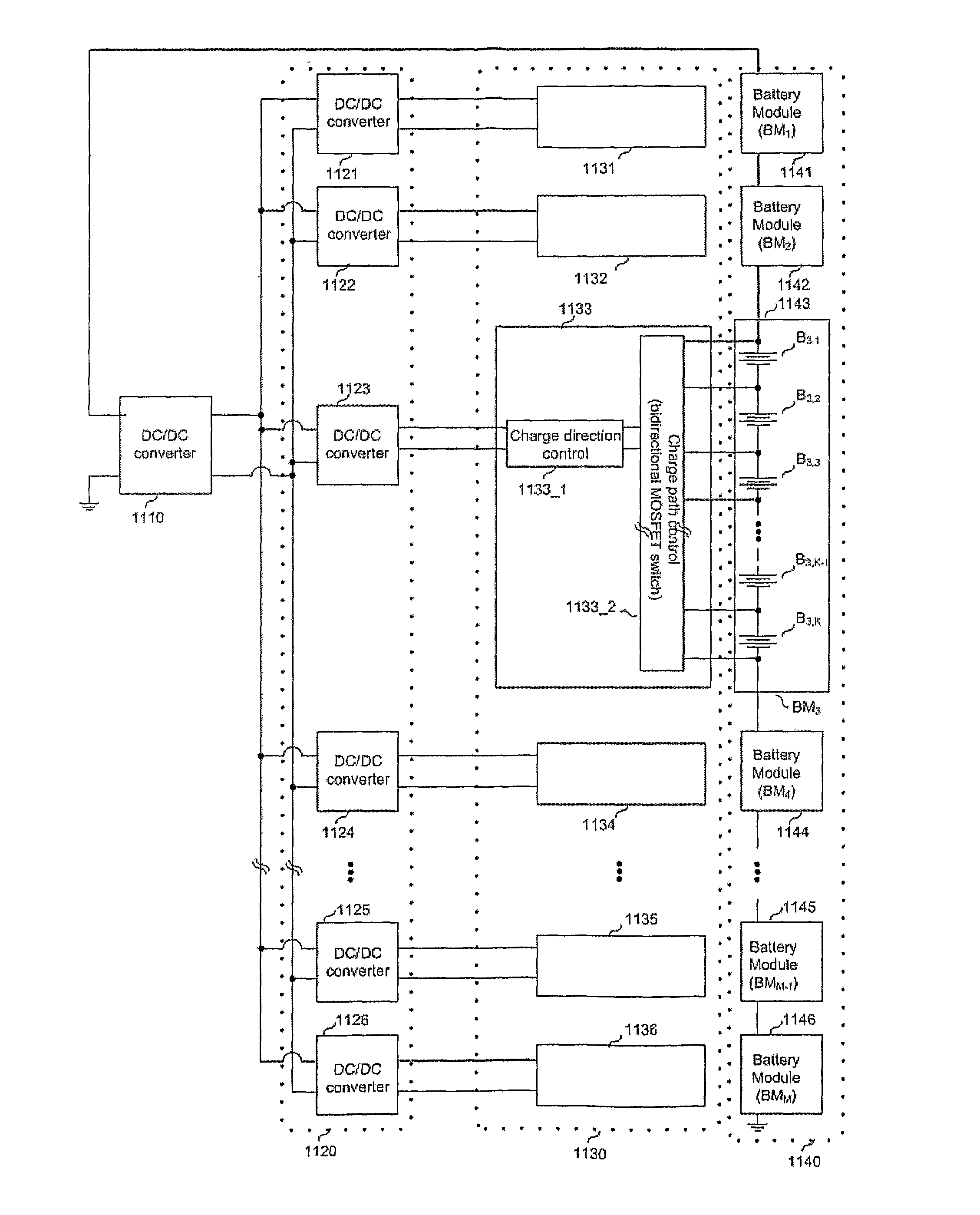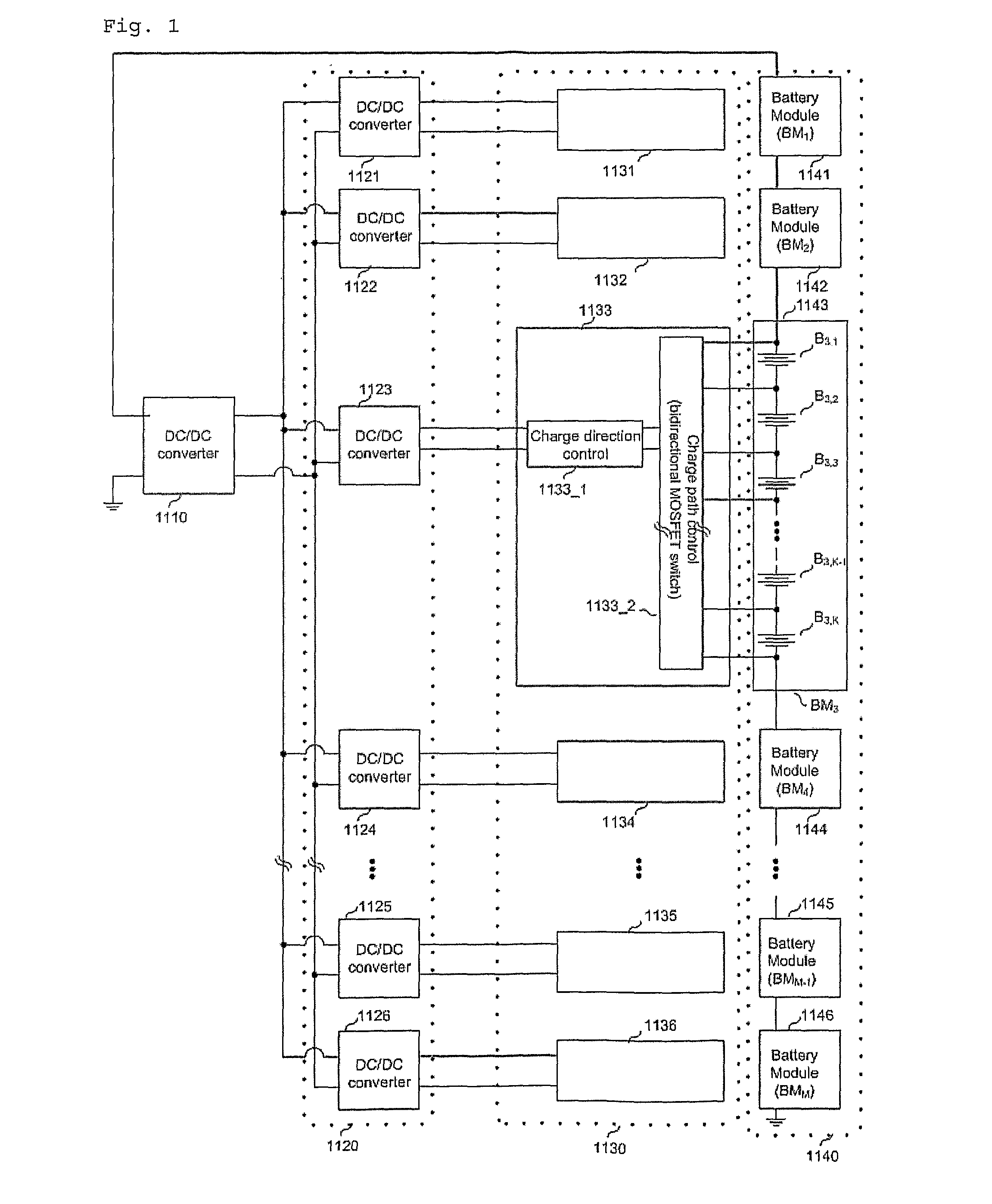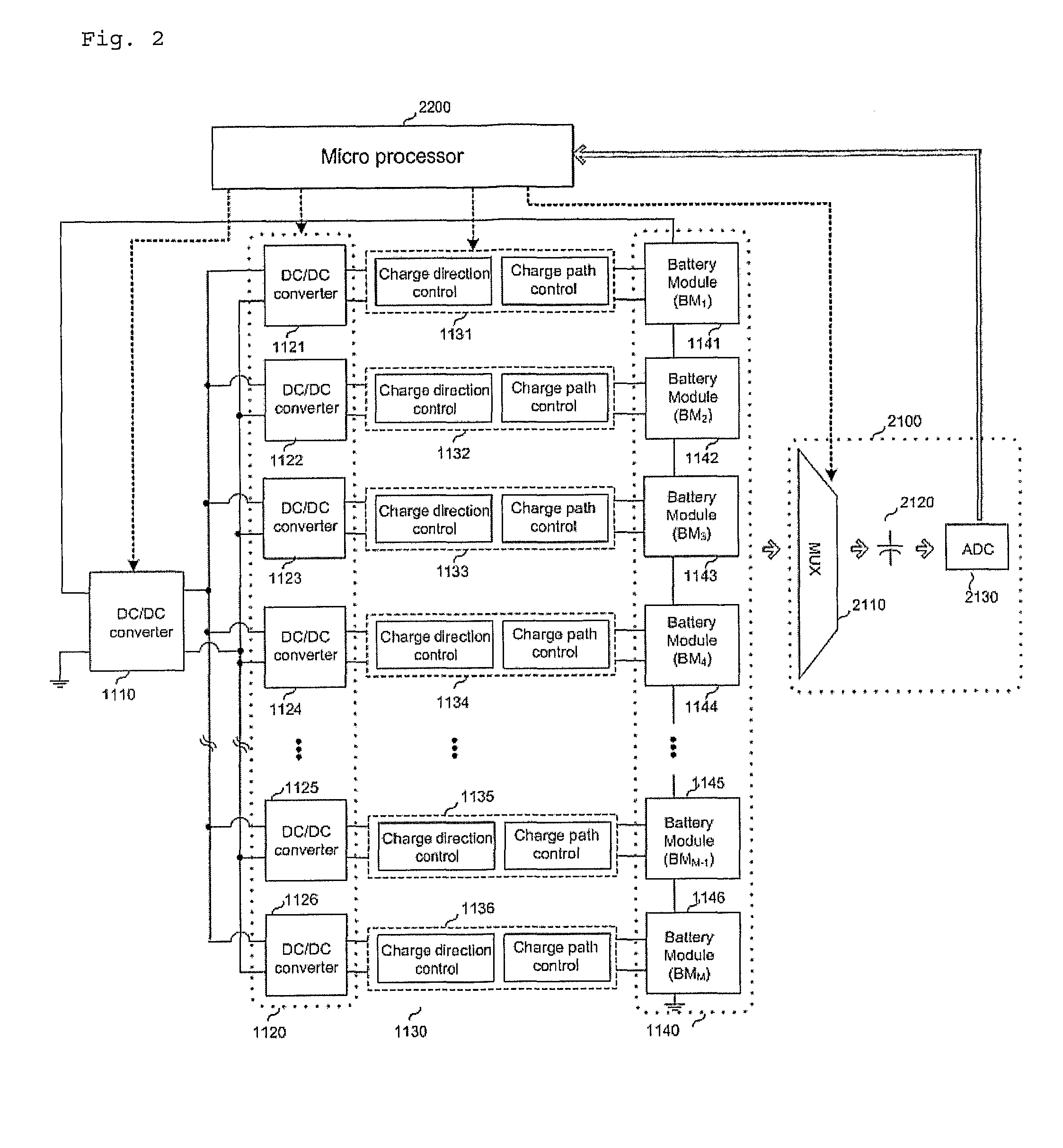Two-Stage Charge Equalization Method and Apparatus for Series-Connected Battery String
a series-connected battery and equalization method technology, applied in the direction of electrochemical generators, instruments, transportation and packaging, etc., can solve the problems of increasing the complexity and volume reducing productivity, and affecting the efficiency so as to reduce the complexity of the charge equalization apparatus, reduce the voltage stress, and reduce the effect of charge equalization
- Summary
- Abstract
- Description
- Claims
- Application Information
AI Technical Summary
Benefits of technology
Problems solved by technology
Method used
Image
Examples
Embodiment Construction
Hereinafter, a charge equalization apparatus and method according to the present invention will be described in detail with reference to accompanying drawings. The accompanying drawings are provided as an example sufficiently to deliver an idea of the present invention to the person skilled in the art. Therefore, the present invention is not bounded by the drawings presented hereinafter but can be specified in another form. Further, like reference numerals denote like element throughout the following detailed description of the invention.
At this time, if the technological terms and science terms used herein do not have any other definition, they have meanings that can be typically understood by the person skilled in the art. Further, known functions and structures which can unnecessary make obscure the subject matter of the present invention in the following description and accompanying drawings will be omitted.
In order to make clear the description of the present invention upon des...
PUM
 Login to View More
Login to View More Abstract
Description
Claims
Application Information
 Login to View More
Login to View More - R&D
- Intellectual Property
- Life Sciences
- Materials
- Tech Scout
- Unparalleled Data Quality
- Higher Quality Content
- 60% Fewer Hallucinations
Browse by: Latest US Patents, China's latest patents, Technical Efficacy Thesaurus, Application Domain, Technology Topic, Popular Technical Reports.
© 2025 PatSnap. All rights reserved.Legal|Privacy policy|Modern Slavery Act Transparency Statement|Sitemap|About US| Contact US: help@patsnap.com



